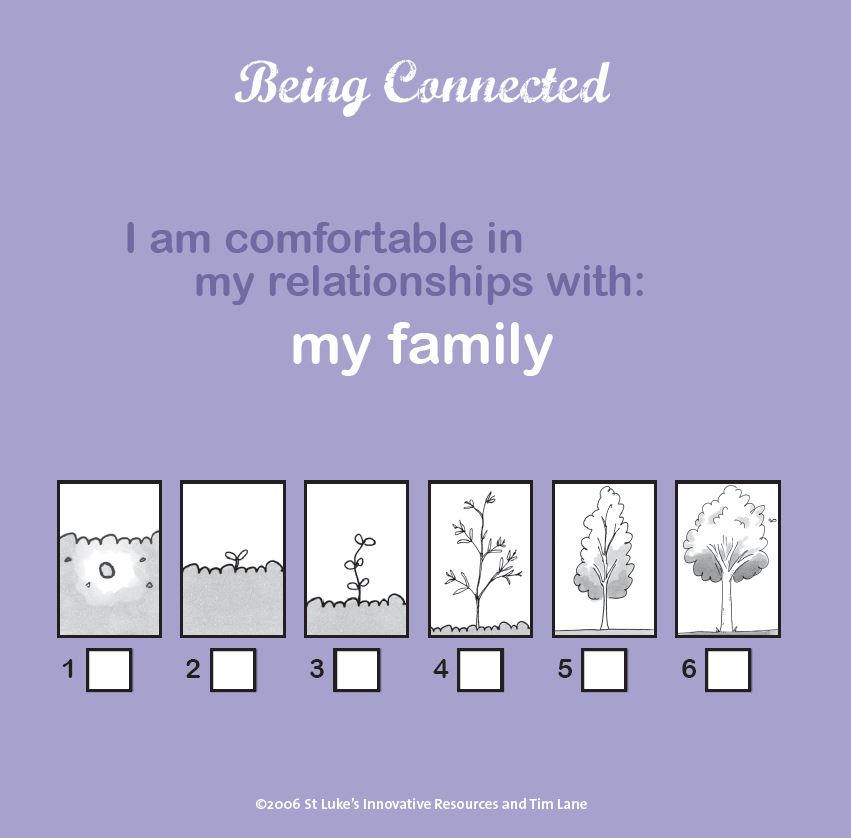When we are trying to make a change in our lives or we are supporting someone else to make changes, it can be easy to forget how far we’ve come. It can also be hard to measure progress when it is slow or non-linear. By losing sight of what we’ve already achieved, we can easily become disheartened and lose motivation to continue on the journey.
This is where scaling tools can be really valuable. Scaling tools can be used to measure and record even the smallest steps in the right direction. They can also be used to plan next steps. When we use them regularly, they can be used to create a map of our progress.
Scaling tools are nothing new. They are all around us, from thermometers used to show how much money has been raised for a fundraiser to the smiley face rating scales we are asked to complete whenever we buy something or use a service. In fact, the thing that make scaling tools so engaging is that they are familiar, easy to use and often very visual.
How scaling tools work in practice
 Several years ago, I was reminded how powerful a simple scaling tool can be. I was working with a young person who wanted to move out of home. Every time we met, he’d set a small goal and we used a simple paper scaling tool to track his progress.
Several years ago, I was reminded how powerful a simple scaling tool can be. I was working with a young person who wanted to move out of home. Every time we met, he’d set a small goal and we used a simple paper scaling tool to track his progress.
A few months in, after a fight with his dad, he told me he was feeling incredibly frustrated that nothing had changed and he felt like he was no closer to moving out. We sat down and looked back at the scaling tools we’d been using over that time. They captured the fact that in those few months, he’d gotten his driver’s licence, written a resume, applied for a tax file number, started a job and, for the first time, had some money saved. While these things weren’t directly relate to moving out, they were all steps in the right direction.
Once he realised how far he’d come in such a short period of time, he decided he wanted to create a new scale to capture everything he had done so far. I asked him, on a scale of one to ten, where he thought he was when we started—he said, ‘I think I was a two’. I asked him how far he thought he’d come towards reaching his goal of moving out—he thought he was now a seven.
Then we talked about what he could do to move to an eight. We also talked about how he would feel when he hit ten. He decided to put this new scale up on his notice board in his room as a reminder of how far he’d come already. After going through this process, his mood lifted and he felt more motivated to keep going.
In this situation, I used a simple one to ten scaling tool but scaling tools come in many shapes and sizes. And it is very easy to make your own! You can use any number of different visual metaphors, like tanks, ladders, a temperature gauge, scales-of-justice or a pathway.
Some typical scaling questions might be things like:
- On a scale of one to ten, with one being when things are at their worst and ten being when things are at their best, where are things now?
- How full is your tank? What fills your tank? What drains your tank? What is one thing you could do right now to increase the water level in your tank by a couple of rungs?
Scaling tools can also be great for collecting feedback from the people you work with. You might ask questions like:
- On a scale of one to ten, how useful was our conversation today?
- What’s one thing I could have done to move up one point?
- If today’s conversation was a ten, what would have happened?
By asking for feedback at the end of every conversation, you not only build a strong picture of what the person values and what works for them, you are also supporting them to build the skills they need advocate for themselves—self-determination in action, one small step at a time!


Hi Elle, thanks for your comments. It sounds like it’s been pretty tough for you and your family during the lockdown, as I know it has been for so many people. But it sounds like the lockdown has also created the time and space you needed to get the house ready for sale, which must have been really satisfying. Hopefully you will be able to get back to work soon – it sounds like you have a great team at Vinnies in Cranbourne! Take care, Sue
I actually was surprised as I read on that I was interested in what you had to say. It is true we need to set goals in front of us so we can maintain a level of perspective in our pathway to what needs to be done to achieve our next step. my frustration at being in lockdown and being unable to put our house on the market has been offset by being able to get it ready for sale while waiting for lockdown to end. I love working at Cranbourne Vinnies I will be sad if this lockdown goes on much longer I miss my co workers and our manager Kim. I miss the inter action with clients while serving on the register. Kind Regards to a fantastic organization Elle